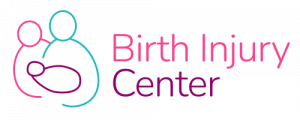Medications to Avoid While Pregnant
This article explores some of the medications to avoid while pregnant. It also lists safe alternatives to these dangerous medicines.
Home > What to Avoid While Pregnant > Medications to Avoid While Pregnant
- Last Updated Date: November 29, 2023
Which medications are safe to take while pregnant?
Medications to Avoid While Pregnant
Tylenol (Acetaminophen)
Types of Injuries from Medication While Pregnant
When to Contact an Attorney
Statute of Limitations
Who is liable for injuries caused by medication?
Frequently Asked Questions
Get a Free Case Review
Medications can be very useful tools for dealing with a number of different conditions. However, when you are pregnant, some of these same medicines can potentially harm you or your baby. Even some of the most innocuous-seeming over-the-counter (OTC) medications can cause complications in pregnancy.
Fortunately, information is available to help you navigate common OTC and prescription medicines while carrying your child. With a little knowledge, you can learn what medications to avoid while pregnant and stick to those that are generally considered safe.
Which medications are safe to take while pregnant?
Pregnancy is a delicate time for both mother and child. Medications that usually don’t cause you to bat an eye become potentially injurious during the nine months a baby is in your womb. For this reason, it is important to consult with a health-care professional regarding the safety of any medication you take.
When deciding which medications to avoid while pregnant, your health-care professional will review the medication and perform a risk/benefit analysis to determine whether you and your baby are better off with or without the medicine.
Generally speaking, the following common medications are considered to be safe options for pregnant mothers and their children.
- Benadryl
- Claritin
- Zyrtec
- Sudafed (after the first trimester)
- Mucinex
- Robitussin
- Metamucil
- Imodium
- Tums
- Pepcid
- Preparation H
- Monistat
Although many organizations consider Tylenol safe, recent research has cast doubt on its effects on pregnant women and fetuses. And you should speak with your OB-GYN before taking any medication, even those listed as safe.
Medications to Avoid While Pregnant
Years of research, observation, and testing have led to a list of medications that mothers should try to avoid while pregnant. In some instances, a doctor may recommend a mother continue taking potentially dangerous medication because the risk of harm from cessation is higher than the harm the medication might cause.
Regardless, your health-care provider should approve any medication you take while pregnant and discuss the risks and benefits. It does not matter whether it is an OTC or prescription drug; anything you put into your body has the potential to harm your child.
Tylenol (Acetaminophen)
As stated earlier, medical professionals have recommended acetaminophen as a pregnancy-safe medication for years.
However, more than one recent study indicates that taking acetaminophen under certain circumstances while pregnant may raise an unborn child’s risk of developing attention deficit hyperactivity disorder (ADHD) by 30 percent and autism by 20 percent.
Additionally, acetaminophen may also increase the risk of improper development of reproductive organs, low IQ, and language acquisition delays. However, not all studies have shown an increased risk.
According to data from over 130,000 pregnancies, ingestion of small amounts of the medication for a short period did not increase the risk of developing these conditions. As such, the careful use of acetaminophen is still recommended by many health-care professionals for the treatment of minor pain and fever.
NSAIDs
There are many nonsteroidal anti-inflammatory drugs (NSAIDs) on the market, including the following:
- Aspirin
- Naproxen (Aleve)
- Ibuprofen (Advil, Motrin)
- Celecoxib (Celebrex)
Although popular for pain relief and widely available in drugstores, many health experts warn of the negative effects NSAIDs may have on unborn babies.
According to the Food and Drug Administration, the use of NSAIDs from about 20 weeks of pregnancy and onward can lead to serious kidney complications in fetuses. Some studies have also linked NSAIDs to an elevated risk of miscarriage if taken in the first trimester. Even intermittent or short-term NSAID use in the third trimester is strongly linked to fetal cardiac complications such as premature closure of the ductus ateriosis which can lead to complications such as fetal hydrops, heart failure, or death.
Antibiotics
Antibiotics are widely used to treat infections. When you are pregnant, your physician must be careful when choosing and administering an antibiotic.
Some antibiotics are generally considered to be safe in pregnancy, such as penicillins and cephalosporins. Others increase the risk of certain congenital defects in unborn children. These include sulfonamides and tetracyclines. Conditions that may be caused by these types of antibiotics include:0
- Heart conditions
- Cleft lip and/or cleft palate
- Unhealthy bone development
- Tooth discoloration
Because of their potential for harm, OB-GYNs and other medical professionals must weigh the benefits the antibiotic offers against the potential harm it could cause the baby and the mother. As such, doctors typically prescribe antibiotics only when necessary to treat verified infections and, sometimes, to prevent potentially deadly infections, such as neonatal GBS septicemia (an infection that can be transmitted during birth).
Isotretinoin and Tretinoin
Once known as Accutane, isotretinoin is an effective acne treatment. However, the risk it poses to unborn children is far too high to reasonably justify its use. You should never take isotretinoin while pregnant.
One study showed that isotretinoin increased infants’ risk of developing serious congenital defects by between 20 percent and 35 percent. For cognitive impairments, the risk jumped to between 30 percent and 60 percent.
A related medication called tretinoin is a topical formula, meaning it is applied directly to the skin. It is also known as Retin-A, and is used to treat acne as well as signs of aging. While this topical version is not as well-studied in pregnancy, case reports exist of birth defects similar to those caused by Accutane in infants born to mothers who used topical tretinoin creams during their pregnancy. Because of this, as well as its similarity to isotretinoin, most healthcare providers strongly recommend against the use of topical tretinoin during pregnancy.
Certain Anxiety Medications
In 2015, the Centers for Disease Control (CDC) released a study that showed an increased risk of birth defects in babies whose mothers ingested certain antianxiety or antidepressant medications, which are known as selective serotonin reuptake inhibitors (SSRIs). Prescriptions in this group, which includes common medications like Zoloft and Prozac, are linked to pulmonary hypertension and other defects in newborns.
Certain Over-the-Counter Medicines
In addition to the NSAIDs, there are a few more OTC medications you should avoid while pregnant or during certain times of your pregnancy. Some of the more popular medicines that you should avoid include the following:
- Pepto Bismol, which can result in the absorption of salicylate
- Guaifenesin (found in cold medicines), during the first trimester
- Decongestants, during the first trimester
Because you do not need a prescription to acquire these medicines, it is important to give your health-care provider a complete list of every medication you are taking or plan on taking. Don’t start taking a medication before you check with your doctor to make sure it’s safe during pregnancy.
Types of Injuries from Medication While Pregnant
Birth injuries are the most serious type of injuries that occur from the use of dangerous medication. The specific drug taken by the mother will determine the type and extent of injury the baby suffers. In some cases, the outcome is death.

Brain Injury
Many of the brain injuries experienced by unborn children occur due to a lack of oxygen. Some of these drugs constrict blood vessels, which compromises the baby’s oxygen supply.
Sustained oxygen deprivation leads to brain injury. Additionally, some drugs cause uterine contractions, which may lead to the baby experiencing brain trauma inside the uterus.

Heart Defects
Congenital heart defects vary greatly in severity. Some can be innocuous, while others necessitate numerous major surgeries. Various common medications may contribute to the risk of developing a heart defect, including:
- ACE inhibitors
- Certain epilepsy medications
- Certain antianxiety medications
- Certain medications for acne
- NSAIDS
As such, it is important to review your list of medications with your health-care provider.

Physical Defects
Both prescription and over-the-counter medicines can cause congenital defects and malformations. Particularly insidious are certain medicines used to treat epilepsy and bipolar disorder, including valproate and carbamazepine.

Cognitive Defects
Researchers have linked various medications to cognitive defects in children. One of these medications is valproate sodium, often prescribed as an anti-seizure medication. In one study, children whose mothers took these medications had a higher risk of experiencing cognitive defects, demonstrated by lower-than-average test scores.
When to Contact an Attorney
If you or your unborn child has suffered an injury due to medication, you should contact an attorney as soon as possible. An experienced personal injury lawyer can determine the viability of your case and help you understand your options for seeking justice.
Statute of Limitations
The statute of limitations is a time limit that dictates when you must file a personal injury claim. Depending on your state, the statute of limitations could be anywhere from one year to three or six years. The clock starts ticking as soon as the harm is caused or reasonably discovered, depending on the jurisdiction.

Who is liable for injuries caused by medication?
There are various ways medication errors occur. The specific situation of each error determines who, if anyone, may be liable. In some cases, more than one party may face repercussions.

Doctors
Doctors are liable for medication errors when they prescribe or recommend drugs negligently. For example, a doctor who should know that a medication will be harmful to a particular patient or her baby could be liable if they direct the patient to take the medicine without proper justification.

Pharmacists
Pharmacists have an important duty to ensure that patients receive the correct medications in the correct amounts. Instances of pharmacist negligence may include filling a prescription with an incorrect dosage or including erroneous instructions on the bottle’s label.

Drug Manufacturers
Pharmaceutical companies have the duty to provide drugs that benefit individuals and society but are not unreasonably harmful. Failure in this duty may manifest in the production of a drug that is unjustifiably dangerous by nature or by faulty production.
For example, doctors once prescribed the drug thalidomide to expectant mothers to alleviate symptoms related to morning sickness. Unfortunately, the birth defects that followed were extensive and numerous, resulting in decades-long civil litigation against the manufacturer, Merrell Dow.
Frequently Asked Questions
Pregnancy and medications bring up many issues and questions. Getting answers is important. Below are some common inquiries concerned individuals have on the subject.
What can I do if I get pregnant while taking a potentially dangerous medication?
When meeting with your health-care provider for the first time, you should report every medication you are taking to them. If one of those medicines may be dangerous to your unborn baby, your provider can work with you to find alternative treatments for the issue.
Is a medication safe to take while pregnant if it is OTC?
As with any medication, it depends. Being able to purchase a medication without a prescription doesn’t mean the product is safe for unborn children. Some OTC medications are considered to be unsafe during pregnancy.
What if my unborn child dies because of a medication error?
Depending on your state, you may have a valid wrongful death claim if your unborn child dies.
How much will an attorney cost to represent my baby and me?
The vast majority of personal injury lawyers work on a contingency basis, which means they take their fee from the compensation you receive. In some cases, juries or judges award attorney fees to injury victims on top of their compensation.
How much compensation is available for medication injury cases?
The circumstances of your case will determine the size of your compensation. Generally, the more serious the injury, the more damages you will be entitled to for compensation of your losses.
How long does a medication injury case take?
Since every case comes with unique circumstances, it is difficult to determine time limits for personal injury lawsuits based on a medication error. Simple cases could take months, while more complex litigation may take years.
For more information on what medications to avoid while pregnant and to find resources if a medication has harmed your baby, contact the Birth Injury Center.
Written by:
Birth Injury Center Team
The Birth Injury Center aims to create informational web content and guides to help women and their families seeking support and guidance for birth injuries caused by medical negligence. All of the content published across The Birth Injury Center website has been thoroughly investigated and approved by medical expert Natalie Speer, RNC-OB, Attorney Ryan Mahoney.


